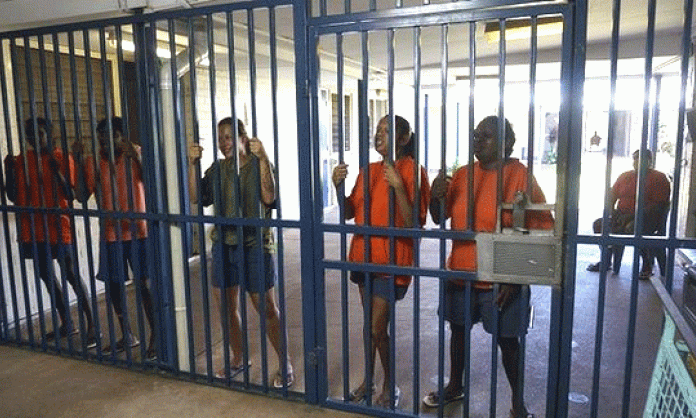More Aboriginal children are incarcerated today than at any time since the Royal Commission into Aboriginal Deaths in Custody concluded, nearly 25 years ago, that “Too many Aboriginal people are in custody too often”. This is one of the findings of a damning report released by Amnesty International on 2 June.
A brighter tomorrow: Keeping Indigenous kids in the community and out of detention details the growing over-representation of Indigenous young people in custody.
Australia-wide, it found that Aboriginal and Torres Strait Islander young people are locked up at a rate 26 times higher than their non-Indigenous counterparts. In Western Australia, they are 53 times more likely to see the inside of a cell than their non-Indigenous peers.
“I don’t think there’s any other way of putting it rather than saying this is racial prejudice”, said Amnesty International secretary general Salil Shetty at a Canberra Press Club address to launch the report.
Shetty called the Australian criminal justice system a “bottomless pit”, labelling state and federal governments’ failure even to keep and share adequate records on youth detention a “scandal”.
He said the situation for Indigenous youth was “dire”, citing figures which show that the notoriously tough-on-crime US state of Texas leads most Australian jurisdictions in the implementation of measures to keep young people out of jail.
Australia is a frontrunner in locking up primary school-aged children. This is despite the United Nations’ repeated recommendations that the age of criminal responsibility – currently 10 years in all Australian states and territories – be raised to the internationally recognised minimum of 12.
Western Australia and the Northern Territory don’t publish data on how many 10 and 11 year olds they have in detention facilities or what proportion of them are Indigenous. In the rest of the country, 63 percent of under-12s in jail are Aboriginal or Torres Strait Islander.
In 2013-14, the last year for which information was available, nearly 60 percent of the Indigenous young people in detention had not been sentenced. Many had not been tried or convicted; they were refused bail only because of a lack of suitable accommodation for them to be released to.
A brighter tomorrow is the latest in a string of reports that document the human cost of the law and order policies pursued at all levels of government. The report acknowledges that its findings break no new ground, with the gross over-representation of Aboriginal people in the criminal justice system already well documented. To all but the governments responsible, the figures tell of an openly racist system.
The release of the report comes as the Western Australian government pushes to expand its “three strikes” mandatory sentencing regime. The last available figures showed that 81 percent of the young people sentenced under these laws were Aboriginal.
In the Northern Territory, it has also been revealed that police used new extrajudicial imprisonment powers 700 times in the first three months of their operation. The so-called “paperless arrest” laws, introduced late last year, allow NT police to detain a person for four hours, without charge, under suspicion that they have committed, or may commit, a minor offence, including making too much noise, singing an obscene song or failing to keep a clean front yard. Police do not have to allow access to a lawyer or a bail justice.
The government says police need these special powers because they otherwise spend too much time doing the paperwork usually associated with an arrest and charge.
Results of a freedom of information request have shown that more than three-quarters of those locked up under the new laws are Aboriginal. Already, one Aboriginal man, a Larrakia elder, has died in a Darwin watch-house while detained in a paperless arrest. The 59 year old man died while being punished for a crime the police never had to charge him with, let alone prove.
The National Aboriginal Justice Agency has launched a High Court challenge to the laws, saying that they are “best suited to a police state.”
There has been no government response to the findings of A brighter tomorrow.









